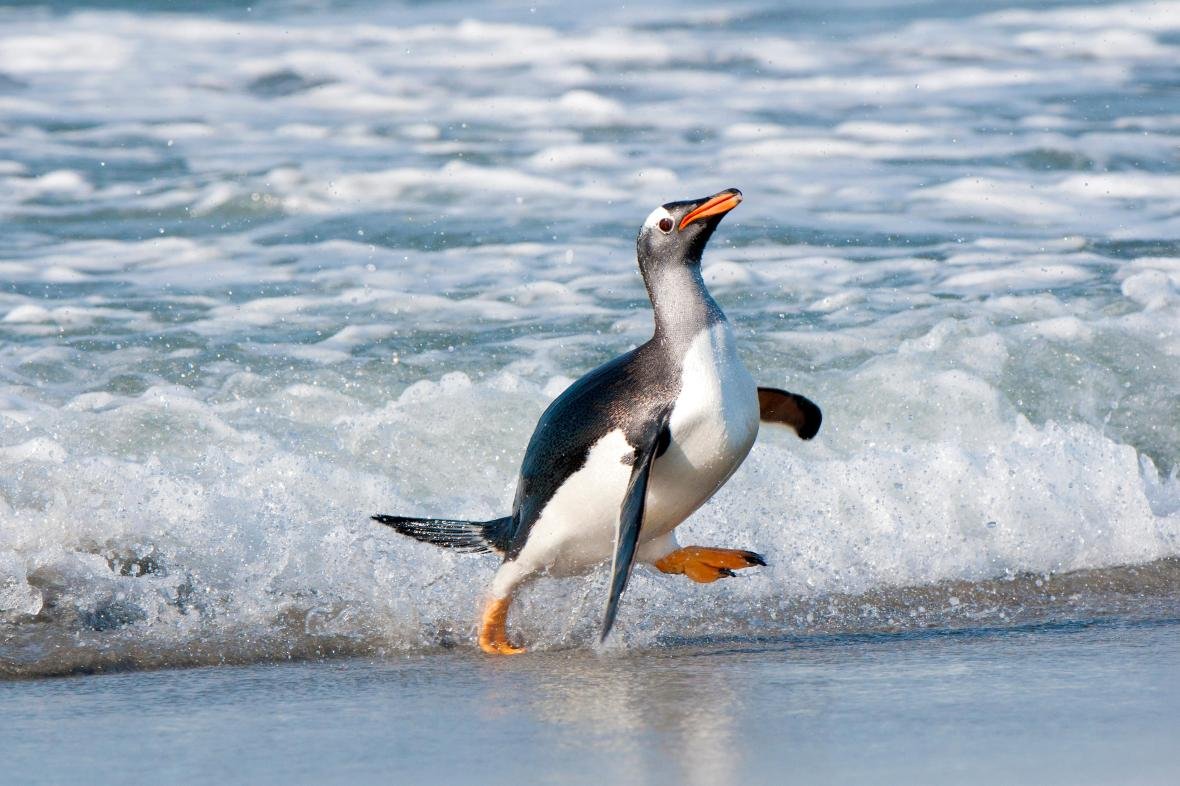Postcard from the Falkland Islands: ‘The 40th anniversary of the war will be a time for reflection’
Written for the April 3, 2022, issue of The Sunday Times. Printed under the headline “Postcard from the Falkland Islands: ‘The 40th anniversary of the war will be a time for reflection”.
As March marches on, the wind is getting a little colder and the skies darker. But the onset of autumn is countered this year by rising excitement at the 40th anniversary of the islands’ liberation on June 14, with a host of events laid on to mark it.
The annual New Year’s Day raft race this year attracted an unprecedented 23 teams from Stanley and the military base at Mount Pleasant, about 45 minutes’ drive southwest of the capital. They built their rafts from recyclable materials and sailed them from the recently mine-cleared beach of Yorke Bay, raising £1,530 for local charities.
The semi-regular Multicultural Day — comprising a carnival parade through Stanley and a free festival at which 32 nations were represented, with dance performances and discussions on culture and history — also attracted more people than before.
The May and Falkland balls (the latter in August) — formal occasions for all ages that include ceilidh dancing — are expected to draw high numbers of participants too. New events are also taking place, including a celebration for Falklands Day on August 14, marking the anniversary of the discovery of the islands in 1592, and the Falklands Fringe, a three-day arts festival in October.
The 40th anniversary of the invasion by Argentina falls on April 2, and the first memorial for those who died during the conflict takes place on May 4, remembering Lieutenant Nick Taylor, a Royal Navy pilot whose Sea Harrier was shot down over Goose Green.
Between May 4 and June 14 more remembrance ceremonies will be held to commemorate other lives lost during the invasion, and the islands’ population of about 3,000 will be swelled by hundreds of veterans. Unlike the two world wars, this is living history — I’ve had colleagues who served in the Falkland Islands Defence Force, and all have tales to tell.
Memorial season, as it’s known, will be at the mercy of Covid restrictions of course. Luckily, thus far the Falklands have remained largely untouched by the pandemic. No lives have been lost to the virus and there has been one incident of community transmission, all other cases having been caught in quarantine as people arrived in the territory.
Other than for a period of just under a month in early 2020, we’ve been able to go to gyms, the cinema, pubs, restaurants and friends’ homes. But the diminution of links with the outside world have really hit us hard. A group of remote islands deep in the South Atlantic is especially reliant on air links. One of the two weekly return flights between the UK has become primarily used by the military, and the two weekly services to South America — landing in Sao Paulo and Santiago — were cancelled in March 2020 and have yet to restart, not only reducing opportunities for residents to travel, but also the amount of cargo that arrives.
Despite this, tourism — which has grown hugely since 1982 to become the second largest industry of the Falklands — made a limited return this year. During the most recent season, which is now coming to a close, the first cruise ships for almost two years arrived at the islands, as the local government changed its visitor policy to allow the docking of expedition vessels with smaller numbers of passengers.
When cruise ships were in town before the pandemic, it wasn’t uncommon for the population to double as large ships dropped thousands of day-trippers. Over the course of a tourist season, from October to April, tens of thousands would arrive — in 2019 there were nearly 73,000 — and locals look forward to meeting outsiders and perhaps earning some extra revenue at their shops or by providing ancillary services such as working as guides.
During the pandemic there was a boom in domestic tourism, with residents given vouchers to use for trips within the Falklands — £500 for each adult and £250 per child. This has allowed those who might not otherwise be able to afford a holiday or would usually travel abroad to reach the outer islands and see some of the incredible wildlife there: seven species of whale; six types of penguin; three species of seal, including the extraordinary southern elephant seal, which can weigh as much as four tonnes; and spectacular birds, from the southern giant petrel to the black-browed albatross.
Another source of excitement during 2022 is the prospect of Stanley becoming a city. It has applied for the designation as part of the Queen’s Platinum Jubilee, and is being considered among 37 other towns, including Boston in Lincolnshire, Colchester and Milton Keynes.
Stanley is smaller than many of the others in the running, but hopes remain high that our special year may become even more remarkable.
Nicholas Roberts

